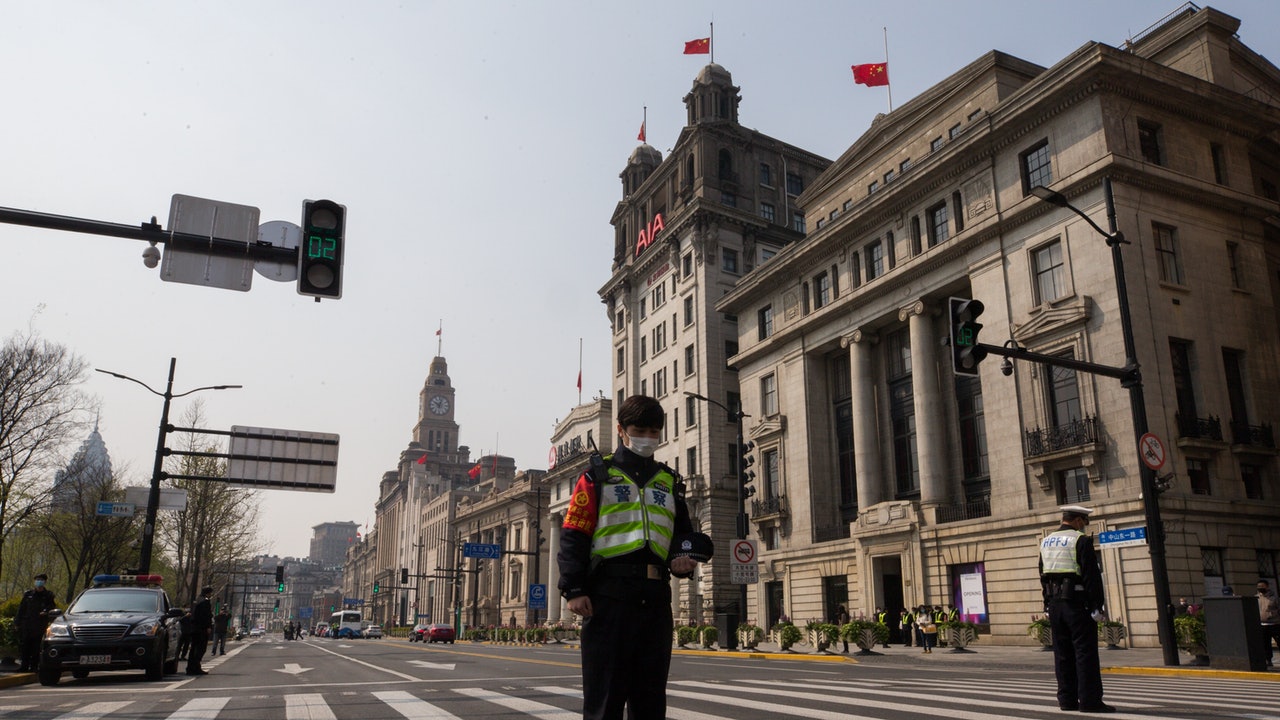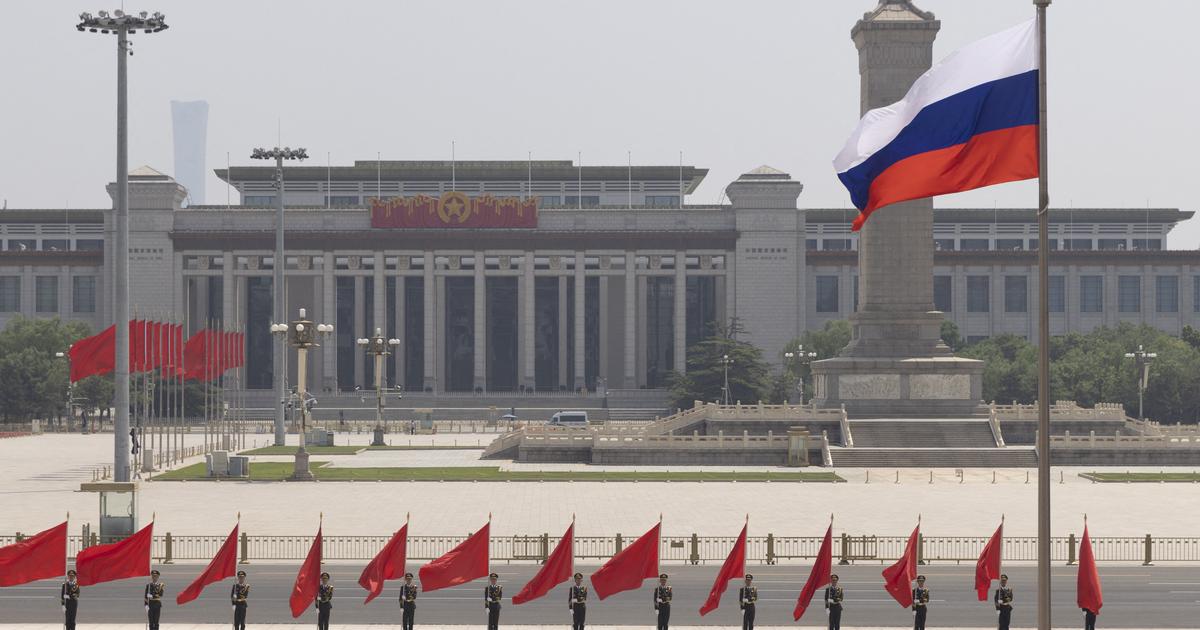The new crown epidemic has entered its third year. Looking back at this crisis that mankind has encountered together, we can summarize and reflect on it from multiple aspects.
Specifically, China, as the country where the epidemic broke out first, has achieved good prevention and control results in the early stage, and the death toll has remained low so far. Trials and challenges.
One of the challenges is how to keep the bottom line of the rule of law in the process of epidemic prevention, continuously establish and improve the legal system, and truly govern the country according to law.
Throughout the past two years of epidemic prevention and control, the question of the rule of law can be said to be throughout.
The first stage was at the beginning of the outbreak in Wuhan, when Qin Qianhong, a professor at the Law School of Wuhan University, suggested that China should introduce an "emergency law" and even establish a "whistleblower system" to avoid unconstitutional laws and the recurrence of the "Li Wenliang Incident". ".
Tong Zhiwei, a professor of constitutional law at East China Normal University, called in an interview with Caijing on March 2, 2020, that the public health crisis must be resolved on the track of the rule of law, and the rule of law should be adhered to in epidemic prevention and control. Respect fundamental human rights.
He suggested that all public officials involved in the fight against the epidemic should study the relevant provisions of the Emergency Response Law and avoid "excessive and even extreme practices" that would hinder the effect of fighting the epidemic and waste anti-epidemic resources.
He believes that the Wuhan epidemic not only tests the rule of law in China, but also allows the rule of law to grow.
In the past two years, many officials have been held accountable for ineffective epidemic prevention, but few have been held accountable for indiscriminate law enforcement and excessive epidemic prevention, and the legal risks brought by epidemic prevention have been ignored to a certain extent.
The second stage is the outbreak of the epidemic in Shanghai. At this stage, people's questions about how to keep the bottom line of the rule of law are more urgent.
The Shanghai epidemic short film "April Sound" records the well-known chaos since the closure of Shanghai, which shows that individual tough prevention and control measures may have touched the "bottom line of the rule of law" that Tong Zhiwei said.
In March 2022, Tong Zhiwei published an article titled "Legal Opinions on Two Measures for Shanghai's New Crown Epidemic Prevention and Control", stating, "The disclosed video and audio of the dialogue between Shanghai officials and relevant residents show that the two measures taken in Shanghai's new crown virus epidemic prevention have caused The situation is very serious, and the reaction among the citizens is very strong, and it is likely to cause some kind of rule of law disaster.”
He appealed that any practice of using coercive means to force residents to be sent to the shelter for isolation is illegal and should be stopped immediately; any institution in Shanghai has no right to forcibly require citizens to hand over their residence keys and enter the residences of citizens to "kill"; If the government believes that a state of emergency has arisen, it may request the Standing Committee of the National People's Congress or the State Council to take corresponding measures in accordance with the Constitution.
At the end of the article, he said: "Epidemic prevention must be balanced with the protection of citizens' rights and freedoms; state organs and officials at all levels should strictly abide by the Constitution and laws, and must not violate the principle of the rule of law or undermine the legal system for convenience. Since the founding of the People's Republic of China, Shanghai has always been enlightened. , the rule of law, and prosperity are known throughout the country and even the world. Shanghai's "Sixteen Characters Spirit", which has been advocated for many years, has become the pride of the general public. How does Shanghai contribute to scientific and democratic epidemic prevention? It is the responsibility and mission of leaders and citizens at all levels in Shanghai to set an example nationwide.”
At the end of the article, professors who contributed to the content of the article are introduced in the notes.
Tong Zhiwei mentioned that the article collected the opinions of more than 20 professors from educational and academic institutions such as East China University of Political Science and Law, Fudan University, Shanghai Jiaotong University, Shanghai Academy of Social Sciences, South China University of Technology, Wuhan University, Hubei University, and Peking University; Sang Yucheng, chairman of the Shanghai Political Society and Fudan professor, also put forward important revision opinions. The 68-year-old author Tong Zhiwei is a Shanghai resident and serves as the vice chairman of the Constitutional Research Association of the China Law Society, and the senior prosecutor of the Supreme People's Procuratorate. job.
These reflection articles are not the words of Tong Zhiwei's family, but a loud cry from the mainland academic circles to uphold the bottom line of the rule of law.
The third stage is the current normalized epidemic prevention and control in China. This stage relies on normalized nucleic acid testing at the prevention and discovery level, as well as the preparation of hardware facilities such as permanent shelters at the treatment level. However, normalized epidemic prevention and control, There are also legal concerns.
On June 5, Zhao Hong, a professor at China University of Political Science and Law, commented on how to deal with the legal issue when the government implemented global nucleic acid testing.
She believes that some local governments are strictly preventing the epidemic, interpreting the "Public Security Administration Punishment Law", "Emergency Response Law", "Infectious Disease Prevention Law", "Administrative Punishment Law" and other relevant laws, failing to uphold the authority of the Constitution and laws, illegal It was decided without authorization to impose administrative detention and fines on citizens who did not detect nucleic acid. The legal problems and excessively rigid policies of normalizing nucleic acid eventually resulted in uncontrollable negative effects.
Zhao Hong criticized that if the detention fine is to restrict the personal freedom and deprive of property rights of citizens who have not detected nucleic acid, but being included in the list of punishments for dishonesty or even public exposure in the media is already a serious damage to one's reputation.
Such severe punishment not only improperly links the behavior of individuals with not fulfilling their obligation to cooperate with the inspection, but also has no legal basis for punishment, and also degrades the personal dignity of the individual.
She mentioned that there are also a lot of legal risks brought about by normalized nucleic acid testing. First of all, the huge economic and human costs incurred by the government for this purpose, but how governments at all levels will pay for this expenditure is rarely clear; the huge market size and The frequent occurrence of nucleic acid testing frauds driven by interests is also related to opaque information and weak supervision; normalized nucleic acid is a heavy burden for individuals, and the cost of law enforcement is high for the government.
He believes that the frequency of testing and the scope of screening should be scientifically determined, so that nucleic acid testing will not slide to excessive waste of resources and little effect through normalization.
She believes that local governments need to weigh the frequency and scope of screening according to local epidemic trends, and cannot conduct unlimited and high-frequency nucleic acid testing for all employees in order to avoid epidemic prevention responsibilities and seek short-term and fast results, especially nucleic acid testing and citizens' Personal freedom and legal responsibility are tied to each other.
There are individual rights and social costs behind the determination and choice of any public policy, which also requires the government to observe a scientific, rational and prudent attitude in decision-making, so as not to make some rigid and excessive policy choices ultimately lead to irreversible consequences. negative effects of control.
This once-in-a-century epidemic is a big test of China's governance capacity and a big test of the rule of law.
Since the 18th National Congress of the Communist Party of China, the "Four Comprehensives" has become the general outline of state governance. This strategic layout has included "comprehensively advancing the rule of law" from the very beginning, and it is part of building a moderately prosperous society in an all-round way (the advanced level in 2020 is "Building a modern socialist country in an all-round way"), comprehensively deepening reforms, and comprehensively and strictly governing the party are necessary prerequisites and important starting points.
The further dismantling of the rule of law includes three dimensions: government under the rule of law, society under the rule of law, and country under the rule of law. The 19th National Congress of the Communist Party of China established "the basic establishment of a country under the rule of law, a government under the rule of law, and a society under the rule of law" as an important goal of basically realizing socialist modernization by 2035. , in which the rule of law government plays a leading role in it.
Therefore, whether it is from the perspective of the entire strategic layout, or from the perspective of epidemic prevention and control, the summary and reflection on the rule of law are both important and urgent.
If all parties can take the epidemic as a mirror and continue to check and fill in the gaps, it will be a rare opportunity to promote the progress of the rule of law in China.
Tong Zhiwei, a Shanghai law professor, criticized the illegal Weibo account for "forced delivery of cabins and forced entry into private houses". Beijing law professor approved that epidemic prevention personnel are indiscriminate in law enforcement, worrying about normalized nucleic acid testing, wasting resources and achieving results. East and West are the standard epidemics|Inland, 73 local cases are added Xi Jinping: unswervingly insist on dynamic clearing














